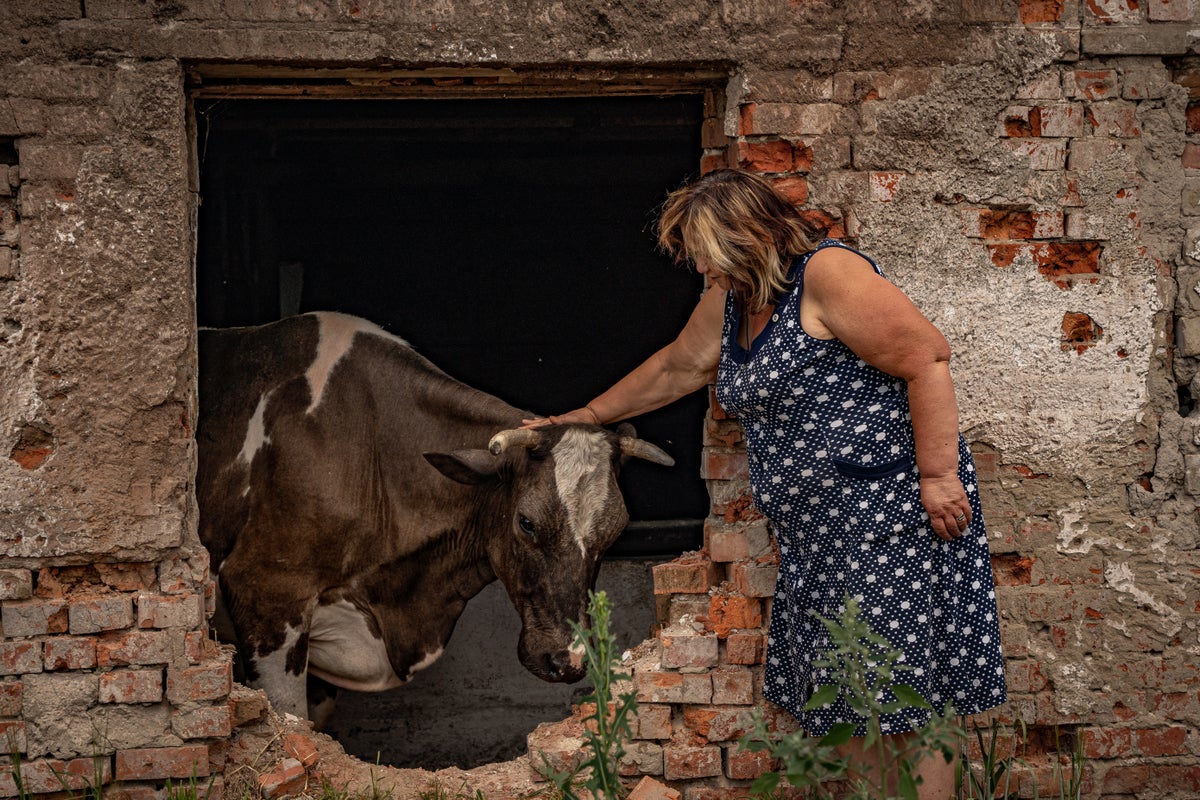
The screams of dozens of her animals being burned alive still haunt Lubov Zlobina, a farmer in the war-wrecked region of Kharkiv.
Russian soldiers were being pushed back by a Ukrainian counter-offensive after a month-long occupation of her area, marked by murder, pillaging and rape. As they retreated, Lubov, the de facto head of the village, says they mined most of her 92 hectares of fields. Then they deliberately torched the main warehouse holding 140 of her cows, calves, pigs and piglets.
As the blaze tore through the pens, frantic farmhands tried to bulldoze through the back wall with tractors to free the animals. The pigs in particular could not be coaxed out. They wouldn’t leave their piglets.
“The noise of the calves, the pigs, screaming inside, I cannot forget. They wanted to protect their young,” the 62-year-old says, her head in her hands, swallowing her words with sobs.
“I was outside crying, ‘get them out! get them out!’ but we just couldn’t. It was impossible. The fire was too big.”
In total, half of the animals burned to death. The sound of their murder, she says, still plays in a loop inside her head.
In a daze she walks through the farm, etched with the scars of Putin’s war on Ukraine and his forces’ month-long occupation. The livestock pen is a charred skeleton of its former self.
Two other warehouses, which held 50 tonnes of wheat (the remains of Lubov’s 2021 harvest) were bombed. A minibus was used by drunk soldiers as target practice. Most of the animals are lame from pot-shot gunfire and shrapnel fragments.
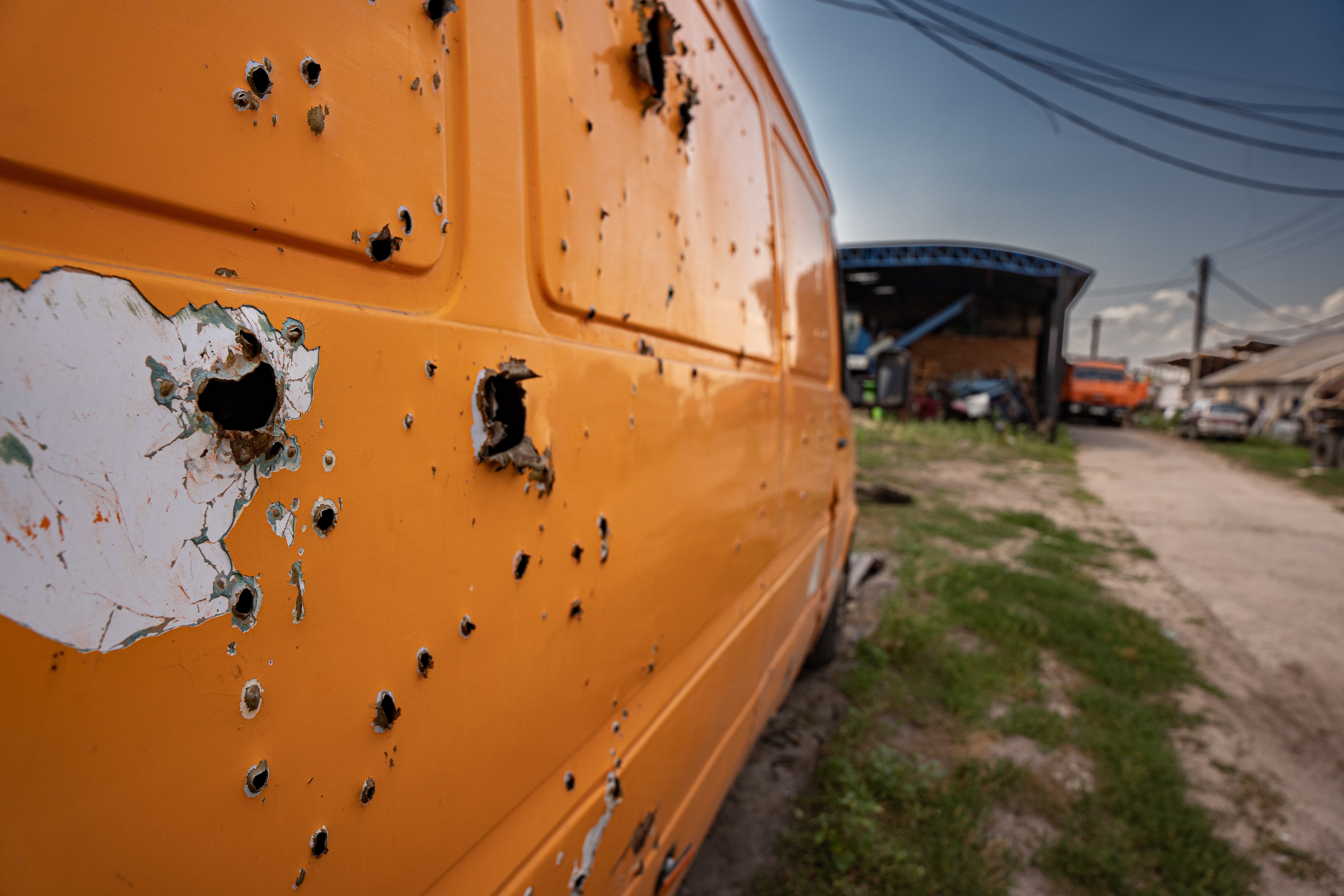
One of her three destroyed tractors was blown up by anti-tank mines that Russians had left in her wheat and corn fields. The farmer driving it at the time is lucky to be alive: he fractured his skull, broke his legs and still walks with a limp. Another member of her staff died from a heart attack after being wounded during an artillery barrage.
Russia vehemently denies accusations by the United Nations, rights groups and civilians that its forces have violated international law or committed possible war crimes. The Kremlin has accused the Ukrainians of staging a “monstrous forgery” aimed at besmirching Moscow’s reputation in the areas which were formerly occupied by their forces.
Lubov says during the occupation, Russian soldiers frequently ransacked this farm and others nearby. They reportedly raped at least one woman in the village and in drunken rages, Lubov says, they would shoot civilians.
“In total they killed five people in the village, execution style,” she continues blankly.
“They left the body of an elderly and partially deaf resident in the centre of the village for three weeks. The dogs had started eating it.”
Now she says the horror of the past is not her only concern. The future of the lives and livelihoods of her staff weigh on her.
There are rumours Moscow is regrouping to press another advance on the Kharkiv region, an agriculturally rich region which lies along the border with Russia. They fear the village could be occupied again.
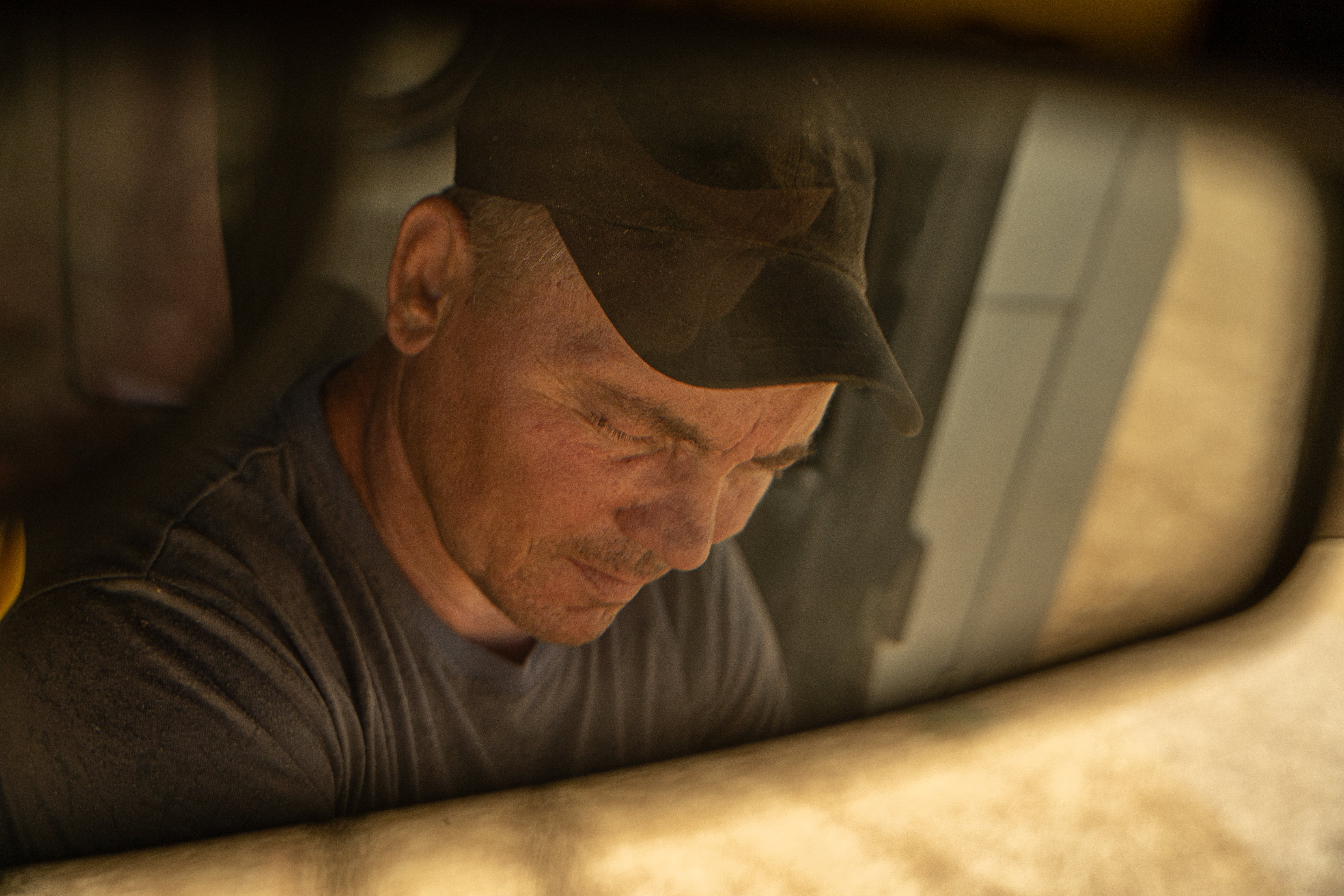
And now is harvest time in this part of the country.
The fate of the harvest will determine the fate of countless farmers across Ukraine, nicknamed the breadbasket of the world because of its sprawling agricultural industry. And like so many shredded farms across the country, Lubov’s can barely function.
With little livestock left, if she can’t harvest and sell the grain, she cannot pay any of her 10-person team nor afford to plant her next year’s crop. So the domino effect continues.
“We barely have any money. My staff got 6500 Ukrainian hryvnia [£186] from the government. We were able to add 2000 [£60] more. But that’s less than half of their monthly salary,” she says.
“We survived the war and occupation, but can we survive this?”
KYIV
“Ukraine’s crisis is connected to the world”
Lubov’s story echoes countless others across Ukraine ravaged by President Putin’s invasion, which was launched in February. And this crisis is not just critical for Ukraine, but the world. Ukrainian and UN officials warn that if the war continues, there will be soaring world food prices, unleashing “an unprecedented wave of hunger and destitution”.
The Ukrainian agriculture ministry says this could subsequently trigger mass migration and even other wars.
It is all because of Ukraine’s unique position in the global food market. According to Markian Dmytrasevych, Ukraine’s deputy agriculture minister, Ukraine feeds 400 million people worldwide. It is the fifth-largest exporter of wheat, and a major exporter of corn and barley. It is also responsible for 50 per cent of the global sunflower oil market.
Experts tell The Independent that Ukraine accounts for about six per cent of agricultural trade around the world. This has been utterly decimated by Putin’s invasion.
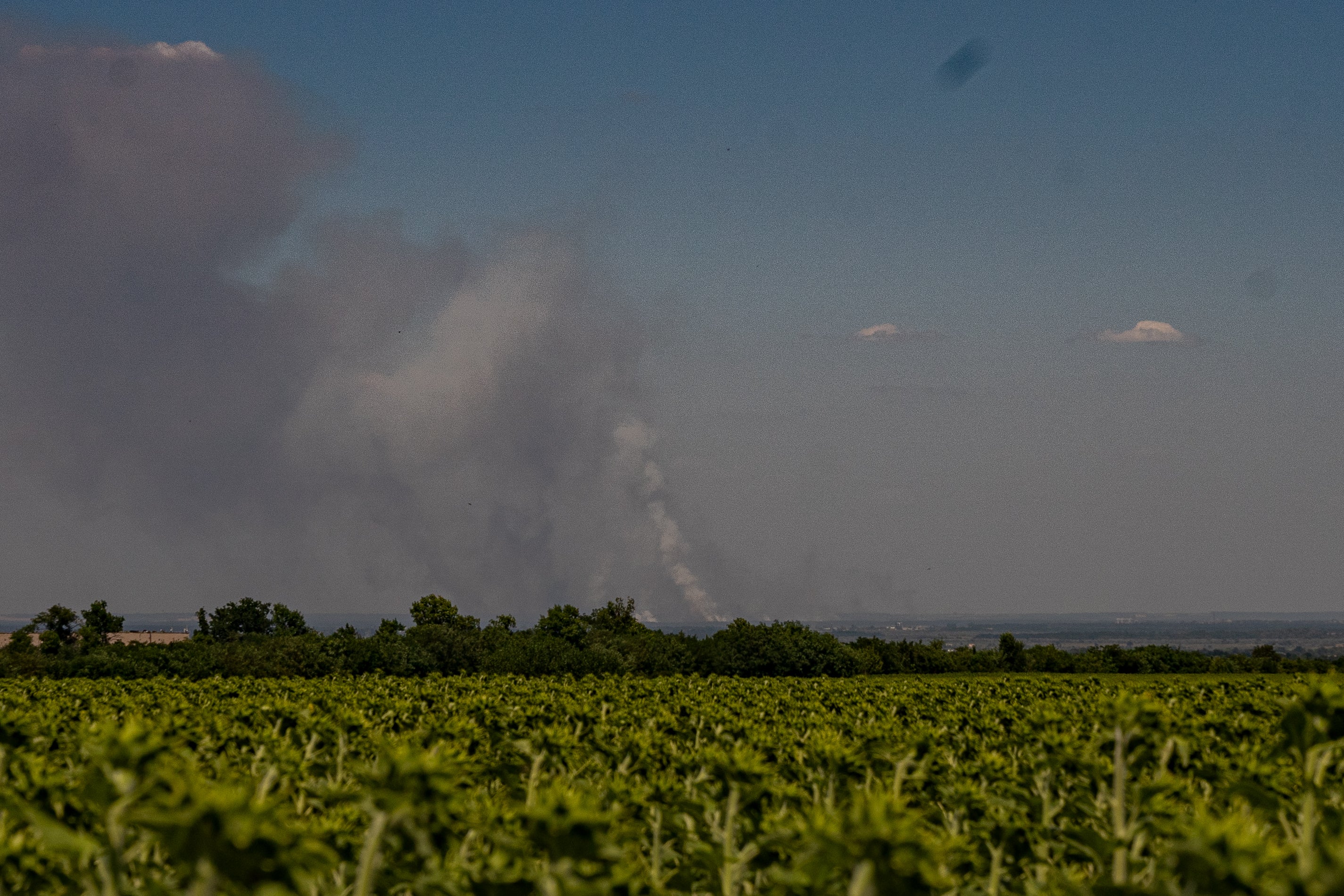
Mr Dmytrasevych says that direct damage to the agriculture sector – such as destroyed equipment and warehouses as well as mined fields – has cost the country $4.5 billion (£3.8 billion). But indirect damage, such as the decrease in production, the disruption to logistics and plunging prices for export, could amount to as much as $20 billion (£16.9 billion).
He estimates that nearly a quarter of Ukraine’s agricultural land is now inaccessible or unusable because it is under occupation by Russian-backed forces, mined or located near the many frontlines.
There are problems even for the accessible lands.
Ukraine exports 95 per cent of grain and vegetable oil by its seaports. The Russian blockade on much of the Black Sea and the Sea of Azov, together with the Ukrainian defensive mining of the waters around the coastline it still holds, means none of Ukraine’s ports are operational, even if some remain comparatively untouched.
That has forced Ukraine to shift to transporting its produce by train and the Danube River, a process which Mr Dmytrasevych says is five times more expensive and simply cannot match the capacity of the sea routes.
And so he says Ukraine, which before the war exported as much as six million tonnes of grain, cereals and vegetable oils per month, has only managed to export three million tonnes over the entire last four months since the war began.
The noise of the calves, the pigs, screaming inside I cannot forget. They wanted to protect their young— Lubov Zlobina, Kharkiv farmer
These shortages have already had an impact globally: worldwide wheat prices, for example, have soared by nearly 60 per cent this year.
“Inside Ukraine we have enough grain for internal consumption but the impact on the world market, the prices, inflation will be especially critical for the poorest countries,” Mr Dmytrasevych explains from his offices in Kyiv.
“I think the world has to be concerned by this. If you have hunger there will be conflict and migration.”
UN officials have also sounded the alarm. UN Secretary-General António Guterres warned in June that the war in Ukraine threatened to unleash “an unprecedented wave of hunger and destitution, leaving social and economic chaos in its wake”.
In Kyiv, Pierre Vauthier from the UN’s food and agricultural agency (FAO), warned this could hit East and West Africa, as well as Asia, particularly hard at a time when global hunger was already on the rise post-pandemic. The FAO estimates that Russia’s war in Ukraine could see the number of people acutely food insecure soar by more than 47 million people this year.
“Most probably Ukraine will not be in a position to resume its crop export even in 2023. That will trigger an even larger increase in prices in the future.”
“Ukraine’s crisis is connected to the world,” he says.
On Friday, a deal is set to be signed allowing exports of grain to resume through the Black Sea, an agreement which could help prevent millions of people avoid hunger worldwide. The deal will be signed by Ukraine, Russia, Turkey and the UN, and although a small sign of optimism, doubts have already surfaced that any deal will be fully implemented.
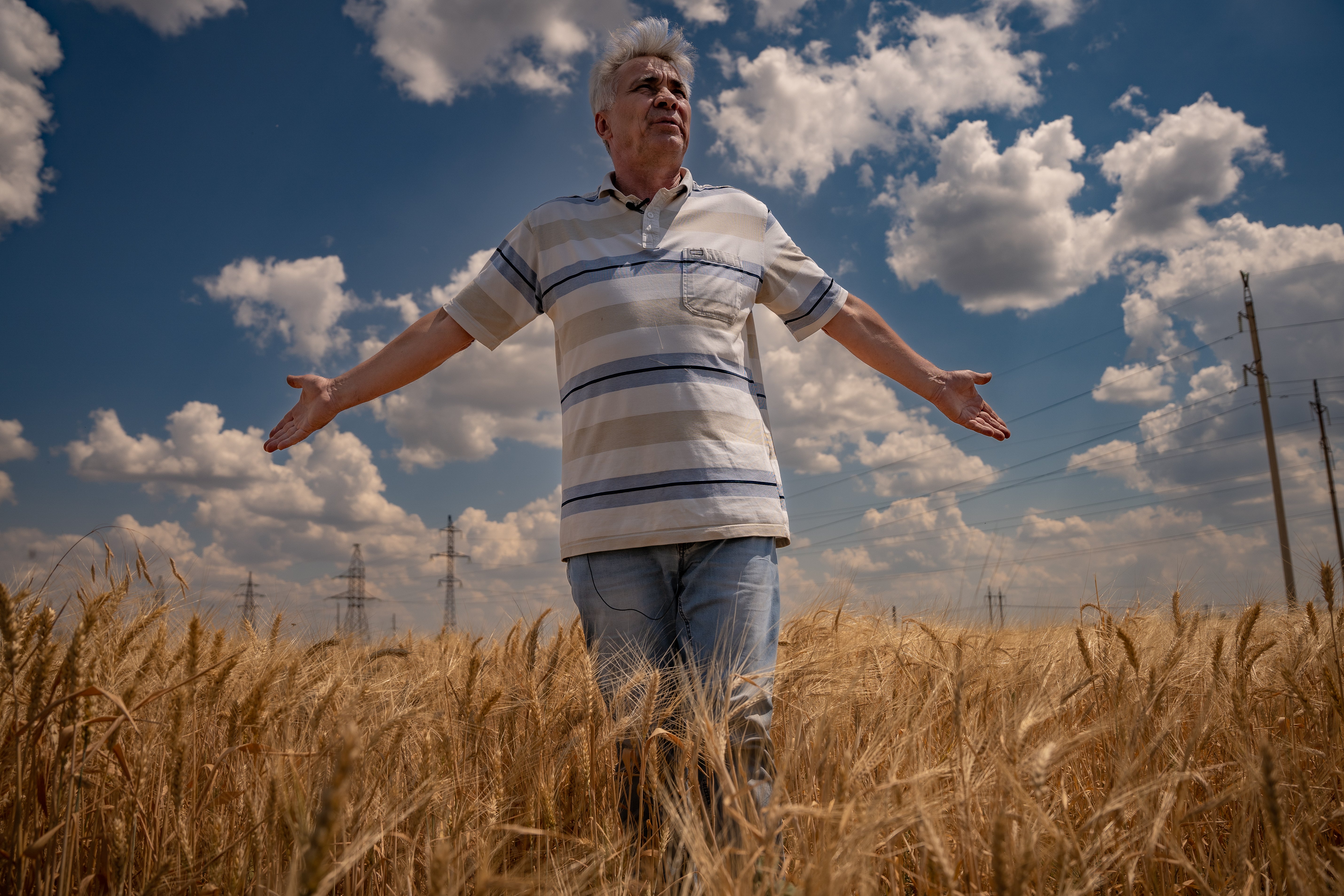
DONBAS
“Ukraine will lose its title of breadbasket of the world forever”
Right on cue, as neat as an exclamation mark, a shell tears into a field behind us, at the very moment Vadym Martov, a farmer, is explaining his concerns about the rapidly advancing frontline.
This is the countryside outside of the city of Dobropillia, in the Donetsk region, now the focus of Russia’s offensive. Moscow’s men and their affiliated forces seized the last remaining towns in neighbouring Luhansk region in June. Their aim is now to take Donetsk and so control the whole strategic Donbas region, rich with rolling wheat, barley and sunflower fields, which against the summer sky echoes the country’s blue and golden flag.
From here the frontline is just 35 miles away, and so the farmlands are well within artillery range. The deceptively quiet hush of the fields is interrupted by the occasional blast of shelling and the whomp of outgoing fire.
Mr Martov, 55, has 300 hectares of land where he grows sunflowers, corn, barley and wheat that wink in the blinding sunlight. In storage, he already has 200 tonnes of wheat from last year’s harvest he still has not managed to shift. The new harvest has just started and he expects 800 tonnes more produce, which he now cannot store.
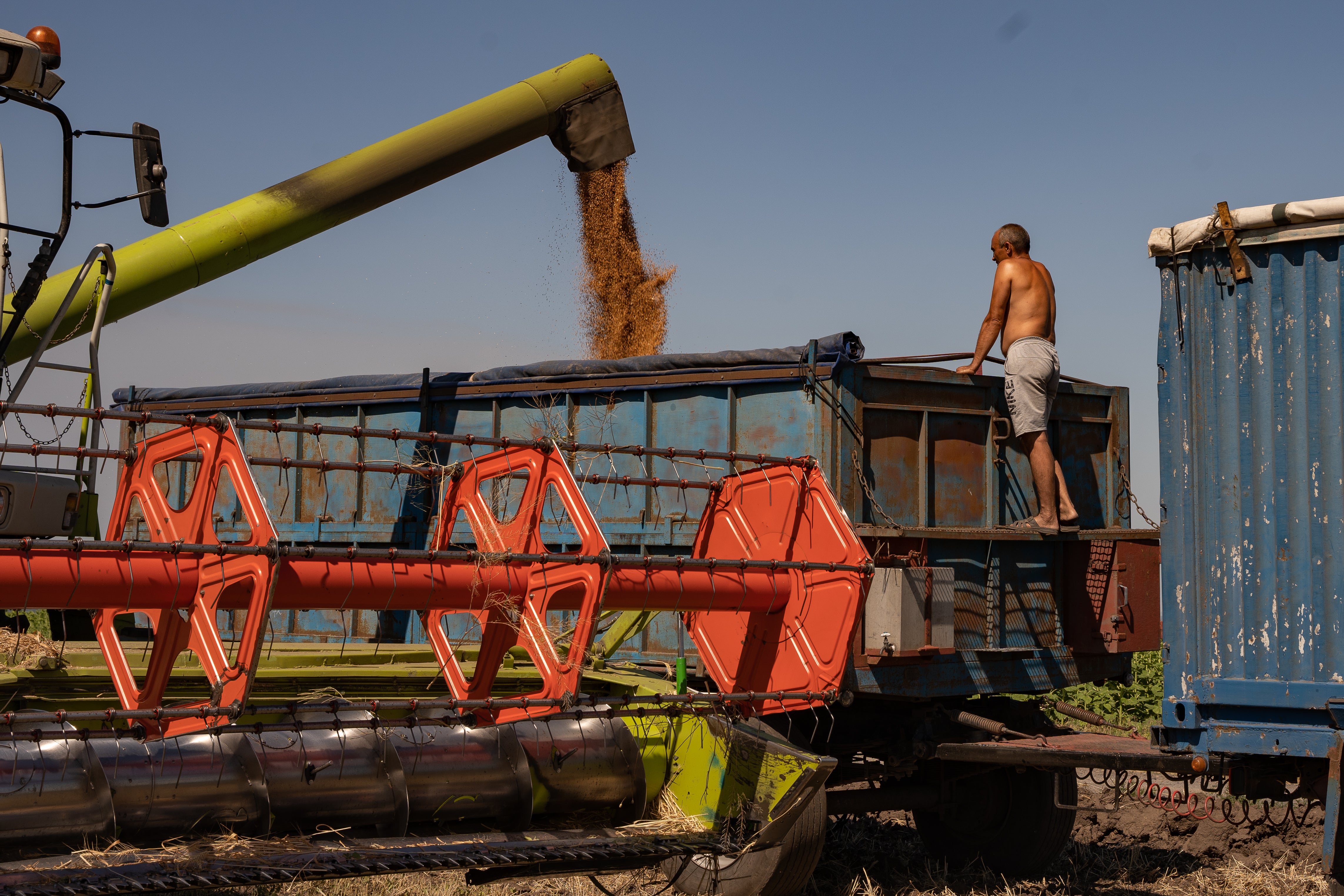
He was hoping to rely on a large grain storage in Dobropillia run by a nationwide bread company. But those grain silos have been shelled by Russian forces three times in the last few weeks, most recently the day before we got there. And so the Kyiv-based bread company has completely pulled out of Donbas.
“I pray the frontline doesn’t reach here, but really I can only rely on God,” the farmer says in desperation.
Storage space is a major problem across Ukraine, which will impact the world. The agriculture ministry estimates that by the end of this season’s harvest the country will have 78 million tonnes of produce stuck in Ukraine that will need to be stored.
Right now, because of lost grain silos and warehouses engulfed in fighting or under occupation, the country only has the capacity to store 65 million tonnes. Kyiv is still trying to work out how to store the remaining 13 million tonnes.
For Mr Martov, he has no option but to sell, but that is also near impossible. Since the start of the war, he says the prices of fertilisers have gone up five-fold and fuel nearly three times, meaning producing grain is prohibitively expensive. But at the same time, partly due to an excess of stock and difficulty in exporting, grain prices within Ukraine have plunged.
At the moment he says traders won’t pay more than $100 per tonne of wheat, which costs almost double that to produce.
“They left the body of an elderly and partially deaf resident in the centre of the village for three weeks. The dogs had started eating it.”— Lubov Zlobina, Kharkiv farmer
“I would effectively be paying a grain trader to get rid of my stock,” he says, dwarfed by the sand dunes of grain in his main warehouse.
“I’m worried about going bankrupt. And now I don’t know what to do. What about the next season – do I sow or do I not?”
And this is the next crisis on the horizon.
After the harvest comes the sowing season, and farmers need money to buy seeds to do that. If they cannot sell what they have just reaped, there not there will be no harvest next year – a dangerous prospect for Ukraine and the world.
“We are talking about the potential loss of at least three harvests,” says Deputy Agriculture Minister Dmytrasevych grimly.
“We cannot sell last year’s harvest. This year’s harvest: forget selling it, we cannot even store it. And the next harvest won’t even happen as there is no incentive for farmers to plant.”
Rodion Rybczynski, director of Ukraine’s Union of Millers, tells The Independent his organisation predicts that these lost harvests will mean 40 per cent of the country’s farmers will go bankrupt and will have to try and find new work.
He said this may change the nature of the country forever.
“Ukraine could stop being a farming nation. Fundamentally, it will change the country and the food markets of the world,” he says with desperation.
“Ukraine will lose its title of breadbasket. It will be like we regressed 30 years.
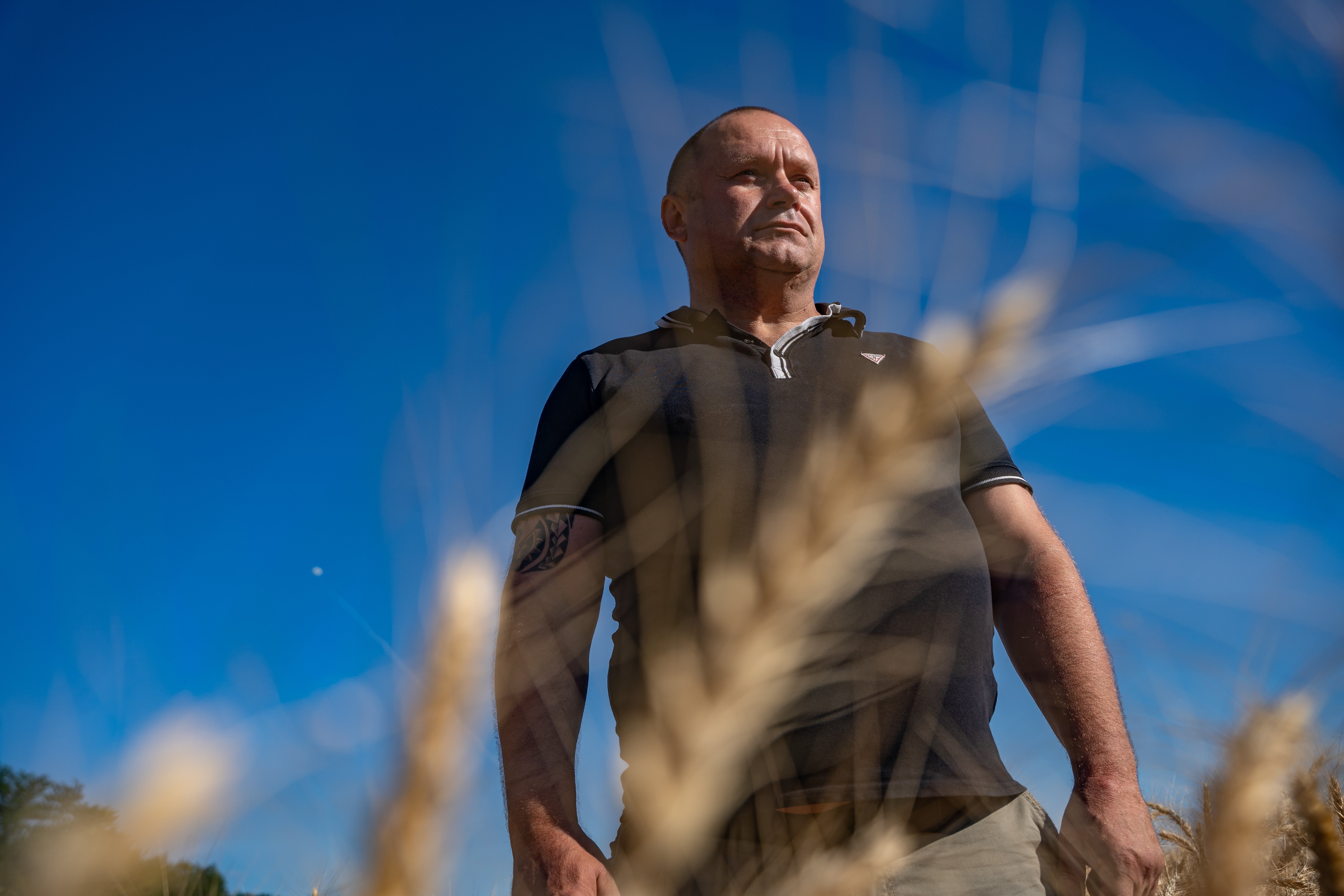
DNIPRO
“What can we do? There are no safe places in Ukraine anymore”
The blare of the air raid siren app, warning of incoming fire, seems incongruous against the swirling glow of the sunflower fields.
But as if a reminder of where we are, a missile suddenly appears in the sky and is shot down by the clap of Dnipro’s anti-air defence system right above our heads.
News alerts confirm that multiple Russian missiles fired at the region had been successfully intercepted.
Oleksander Chebanov, 49, the local farmer who owns this 20-hectare plot of land, dismisses the dissipating puff of white smoke with a shrug.
“What can we do? There are no safe places in Ukraine anymore. Russian missiles can target anything, any place can be hit at any time.”
We head towards the wheat fields where his workers have begun the slow work of a harvest that won’t go anywhere.
“I can’t sell this for more than half of what it costs to make it,” he says bitterly.
“I will wait until the ports are reopened, and we can freely export.
“But how long will this drag on for? It could be years.”
He says he is lucky enough to have a storage solution, but his fellow farmers, at risk of being occupied as the frontline moves forward, are very worried.
“Even if they can harvest and store, will it get stolen?”
The Ukrainian agriculture ministry accuses the Russians of stealing an estimated 600,000 tonnes of grain from the areas they and their affiliated forces now occupy.
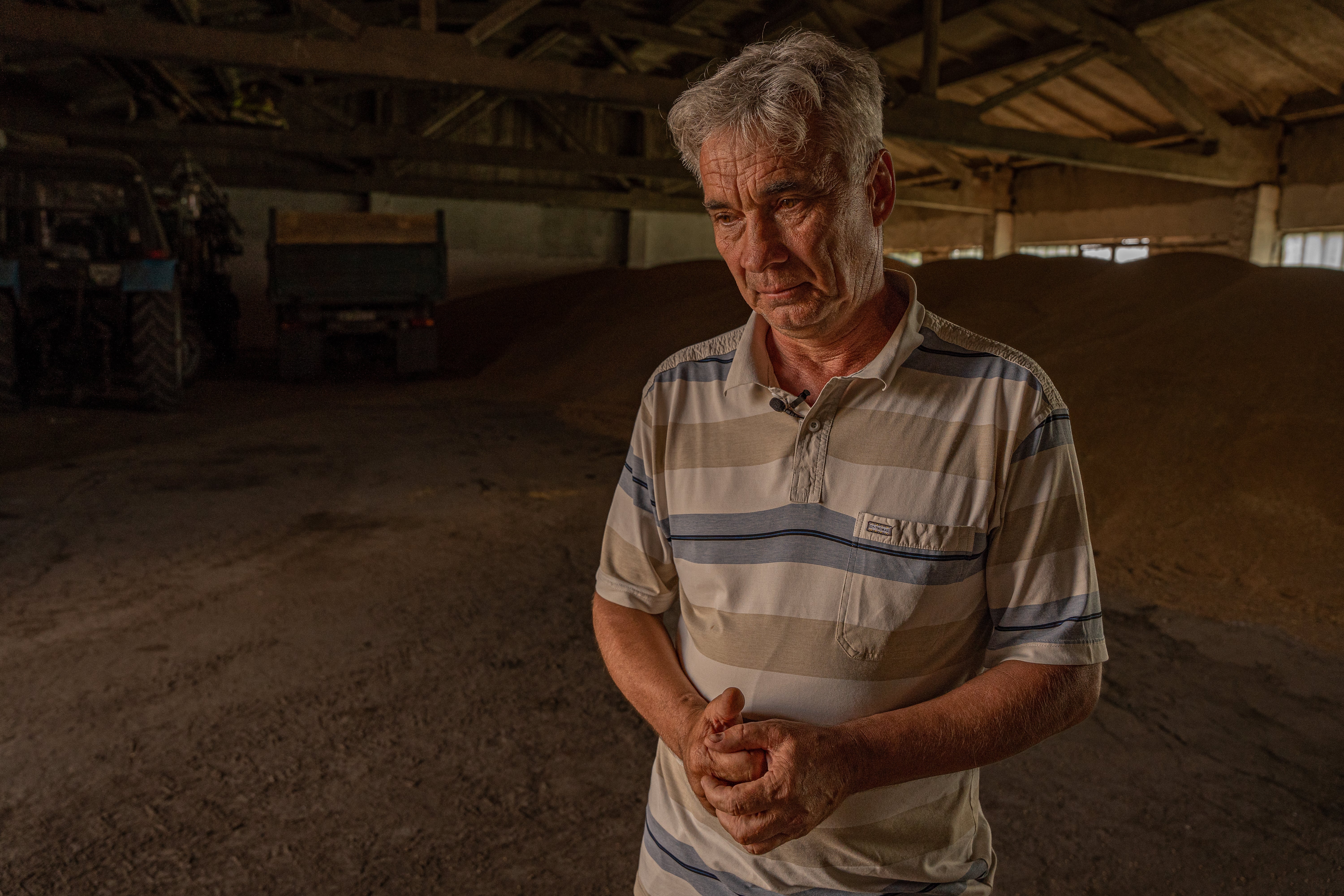
The Independent could not verify the theft of grain, but news outlets including the BBC have investigated and tracked stolen grain going through occupied territory to Crimea, onwards to Russia and then to Turkey reportedly for sale.
Kyiv has asked Ankara to investigate. And several grain producers who operated in the east fear their produce has been stolen.
Tetiana Alaverdova, sales director of HarvEast, which before the war was one of the largest agrarian holding companies in the country, says they have lost access to 70 per cent of their lands since the start of the war, as their biggest fields, amounting to 90,000 hectares, are in now occupied areas of Donbas.
They had already lost half their original lands after the initial war in 2014 erupted, including a huge amount of farming equipment and a seed bank.
Their total losses from this war, Ms Alaverdova says, will amount to more than $100 million, but they cannot make an assessment as they cannot access their property.
They are concerned about the whereabouts of hundreds of members of staff in the occupied and besieged areas like the strategic port city Mariupol. The company tried unsuccessfully to evacuate their workers but it became impossible when phone lines and electricity were cut and the roads into and out of the city were blocked. They do not know how many managed to get out or how many remain behind.
They also have no idea what happened to their equipment and stores.
At the time Russian forces first stormed Mariupol they had 3,000 tonnes (or $1m) worth of wheat on board a Jamaican-flagged general cargo ship bound for Spain.
The crew, who were Syrians, according to Ukrainian media reports, were captured by Russian-based separatists and their fate is unknown.
The fate of the wheat on board is also a mystery.
“We have no idea what happened, we have no idea where the ship is, it’s just gone,” she adds.
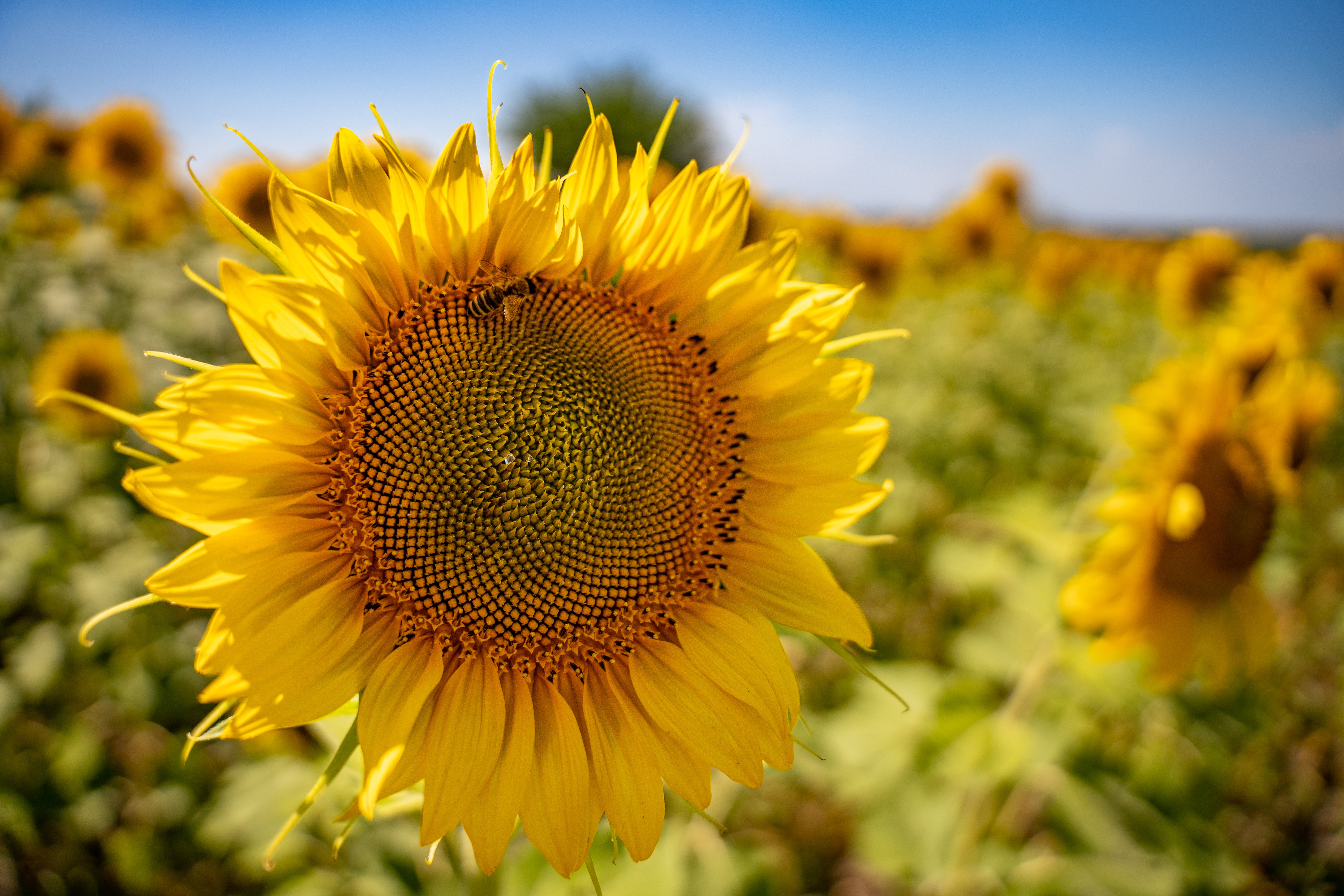
KHARKIV
“We are talking about the loss of three potential harvests”
Back in Kharkiv, Lubov comforts her wounded cattle made lame by landmines, shelling and gunfire. They follow her around like pets: she appears almost magnetic.
She estimates the fighting and occupation of her land has cost her about half a million dollars – which she simply cannot afford.
Government de-miners have cleared the fields of landmines and unexploded ordinances, and so the harvest can go ahead.
“But to what end, if we cannot sell?” she asks.
In Kyiv, the deputy agriculture minister says they are working on new creative schemes to get the grain out, including resurrecting Soviet-era railway track to southern Romania. They also want to build cross-border grain terminals with European countries like Poland to try to make the offloading and reloading process on the grain trains easier and cheaper.
But ultimately there isn’t enough railway stock in Europe or capacity in their ports to take on all of Ukraine’s exports as well.
“For me, the best and only solution is to defeat Russia, and then de-mine the ports,” Dmytrasevych says.
“Until that happens this is a global problem.”
Turkey and Russia are brokering a deal to open up the Black Sea again for Ukrainian exports. Turkey’s defence minister, Hulusi Akar, said this week both sides had agreed on ways to ensure the safety of shipping routes for grain ships.
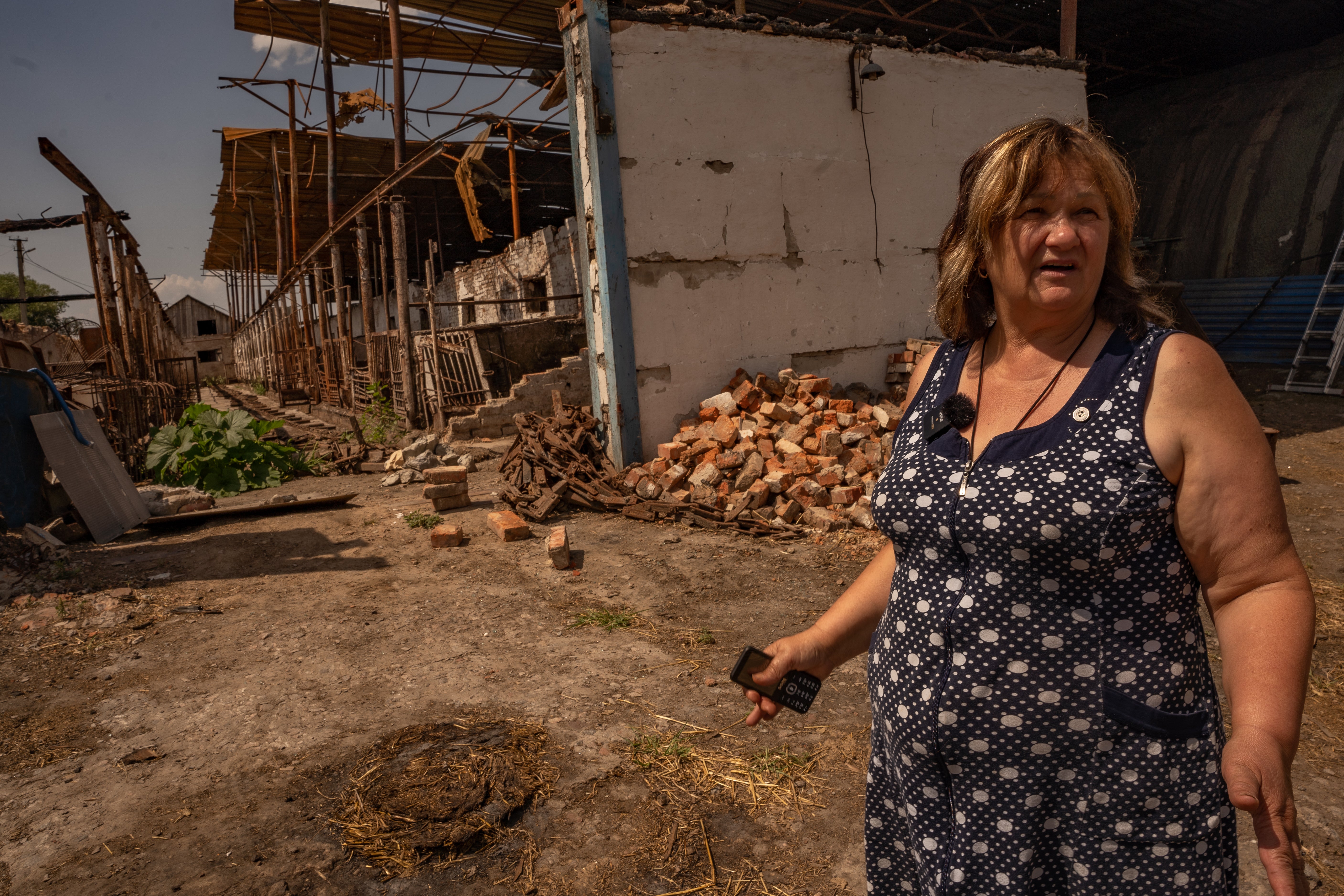
The Ukrainians are skeptical it will work. There isn’t a lot of trust. And so, for the farmers, all they can do is wait.
“A lot of the farmers from the first day of the war said we have our own frontline: our fields. We protect the food security of Ukraine and the globe. If no one can sell their harvest no one can sow, which in turns means no one will harvest,” says Chebanov in Dnipro, islanded by sunflowers.
“Right now the world is already seeing the consequences of that. Food prices are already soaring, hunger is rising.”
“This is a humanitarian catastrophe for us and for the world.”







